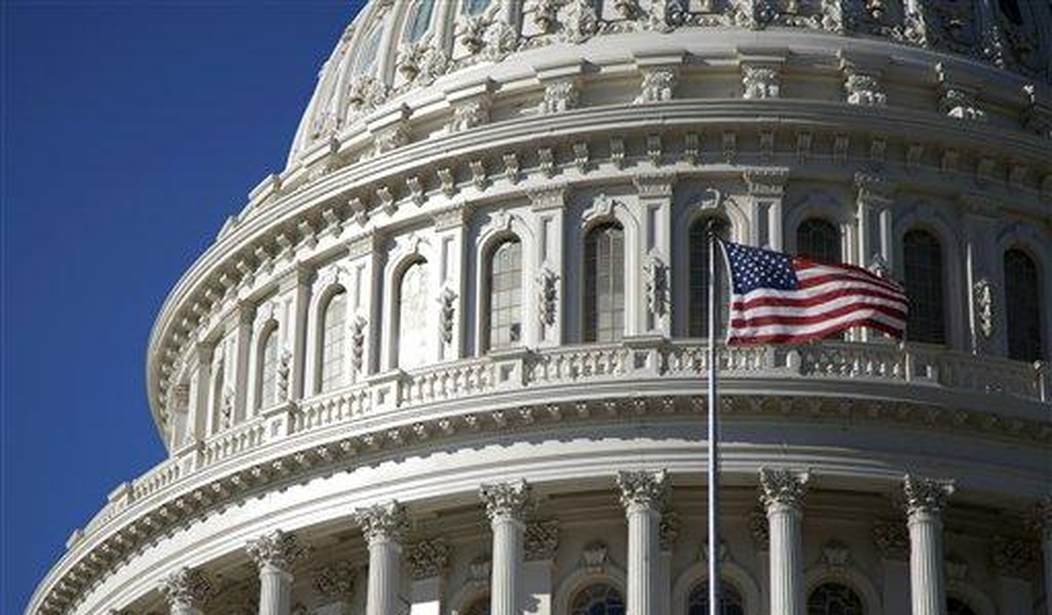Once again, the federal government has reached its debt limit, which currently stands at a mind-boggling $31.4 trillion. To avoid a possible default, the Treasury Department will undertake “extraordinary measures” over the next few weeks to keep the money flowing, however, this is yet another “kick the can down the road” approach that is no longer feasible given our mushrooming national debt.
In 1917, somewhat counterintuitively, Congress established the debt limit so it could have more flexibility for deficit spending during World War I. The first official debt ceiling was established on the eve of World War II, in 1939, when Congress set the amount at $45 billion.
Throughout World War II, Congress increased the debt limit several times to fund wartime spending. By the end of the war, the debt ceiling stood at $300 billion. Shortly after the war concluded and military spending declined, Congress actually lowered the debt ceiling to $275 billion, which it maintained for eight years, the longest stint without raising it in U.S. history.
Unfortunately, when the U.S. military entered the Korean War in 1954, Congress decided to raise the debt limit several more times. And it hasn’t stopped, except for a short period at the end of the 20th century, when the federal government actually ran a surplus for three consecutive years.
Since the dawn of the 21st century, Congress has been derelict in its duty to control the nation’s purse strings. In 2002, Congress raised the debt limit from $6.0 trillion to $6.4 trillion, the first time it was raised in six years. In the decades following, Congress has abandoned any semblance of fiscal restraint as it has resorted to increasing the debt limit 20 times.
Recommended
For instance, in 2011, Congress increased the debt limit to $14.3 trillion. By 2015, it ballooned to $18.1 trillion. In 2019, it eclipsed the $22 trillion threshold. Then, Congress unleashed the federal spending spigot like never before. During the pandemic, Congress increased the debt limit almost $10 trillion more, which is how we arrived at the precarious position we now find ourselves in.
Shockingly, even after the pandemic subsided and most rational Americans assumed Congress would decrease spending, the exact opposite occurred. From the $1.1 trillion “infrastructure” bill to the so-called $740 billion Inflation Reduction Act, Congress has shown little interest in reining in the out-of-control and totally unsustainable deficit spending.
But, that could change very soon. In 2022, the Republican Party won back control of the House of Representatives based on a pledge to the people that they would put an end to the profligate spending. This promise was made even more likely to be held after Rep. Kevin McCarthy (R-CA) was forced to accept and pursue several commonsense fiscal reforms lest he be ousted as speaker of the House.
So far, it seems like McCarthy is not reneging on that promise, which is a win for those of us who have seen this movie before. After all, many recent Republican speakers of the House have vowed to address the untenable spending situation only to reverse course and succumb to the calls for yet more spending and debt ceiling hikes. See, for example, John Boehner and Paul Ryan.
On January 17, McCarthy tweeted, “If you gave your child a credit card and they kept hitting the limit, you wouldn't just keep increasing it. You would sit down with them to identify where they are overspending and where they can change their behavior. It's time for the federal government to do the same thing.”
Expectedly, this commonsense notion caused Democrats, especially those in the Biden administration, to go apoplectic. As per usual, the spendthrift Democrats are using their go-to strawman argument that if we don’t automatically raise the debt ceiling with no spending strings attached, we will default on our debt, which they claim will bring economic Armageddon.
However, this is not true. The federal government could certainly continue to pay its obligations, namely interest payments on the debt and mandated Social Security payments by simply cutting spending in other areas of the federal budget.
In fact, if our political leaders on both sides of the aisle really wanted to address the burgeoning debt crisis many of them created in the first place, all they would have to do is agree on a balanced budget. That is what every family, business, and municipal and state government must do annually. Why is the federal government held to a different standard just because it can borrow and print money at its leisure?
The GOP-led House has made it very clear that spending cuts and a balanced budget are central planks in their debt ceiling negotiations. Only time will tell if they mean it this time. Then again, time is running out and as the great economist Herbert Stein once said way back in 1986 in reference to the then-$2.2 trillion national debt, “If something cannot go on forever, it will stop.”
Chris Talgo (ctalgo@heartland.org) is editorial director at The Heartland Institute.

























Join the conversation as a VIP Member